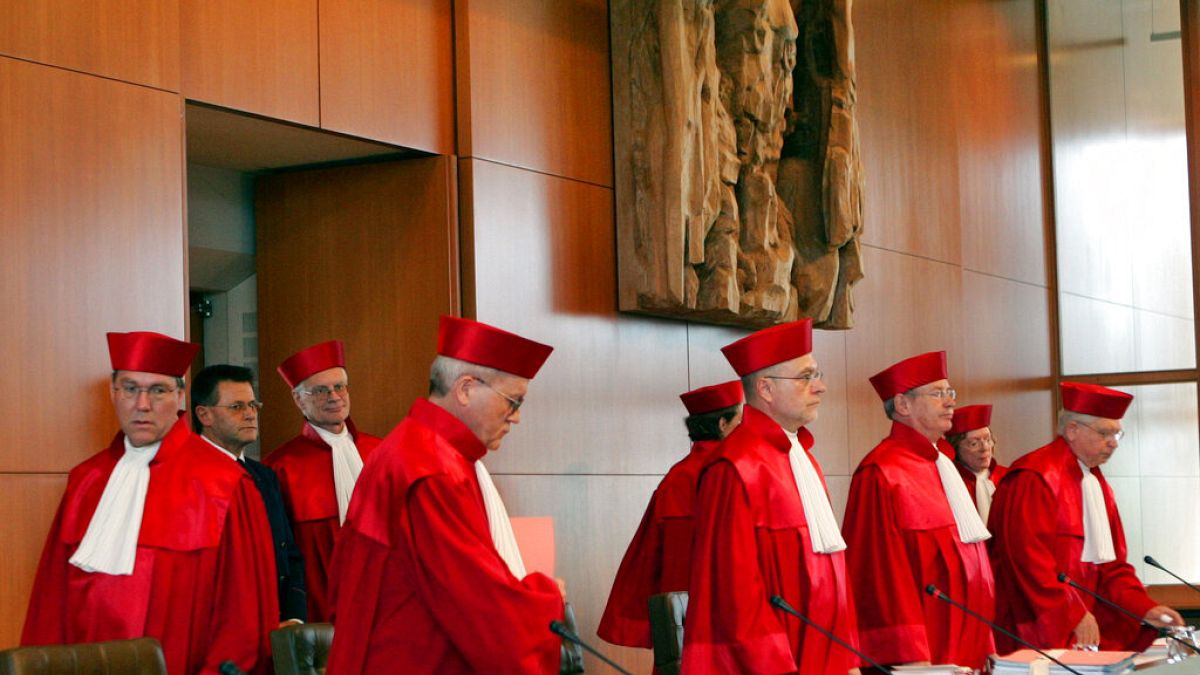Germany’s governing coalition and the largest opposition party, the conservative CDU, have unveiled a plan to fortify the independence of the Federal Constitutional Court in order to shield it from potential extremist influence. This move aims to prevent any future constitutional changes by extremist politicians and groups. The draft law, which is expected to pass during the current governing coalition’s term ending in 2025, will see the court being anchored in the country’s constitution, making it a more integral part of the legal system than it currently is.
Under the proposed changes, judges in the Federal Constitutional Court will now face an age limit of 68 years and term limits of twelve years. These measures are being introduced in response to concerns over the erosion of the rule of law in countries like Poland and Hungary, as well as the strengthening of the far-right AfD party in Germany. The move comes as Chancellor Olaf Scholz and the ruling coalition are facing increased unpopularity, with the AfD gaining ground in recent European elections. The AfD scored 15% below the CDU in the elections, surpassing each of the ruling coalition parties individually.
The situation in Poland, where the nationalist conservative Law and Justice party has sought to exert control over its Constitutional Tribunal, serves as a cautionary tale for Germany. The PiS party in Poland used its power to establish dominance over the court after coming to power in 2015, leading to a dispute with the EU over the rule of law. Germany’s Federal Constitutional Court plays a crucial role in the legal system, particularly in matters such as bailout plans during the eurozone debt crisis. The court has also compelled the government to expedite measures to reduce greenhouse gas emissions and revise its contentious budget.
The process for appointing justices to the Federal Constitutional Court adds another layer of protection against potential extremist influence. Half of the justices are selected by the lower house of parliament, while the other half are chosen by the upper house representing the 16 state governments of Germany. Candidates are proposed by political parties and require a two-thirds majority for election, ensuring that only consensus figures are chosen to serve on the court. This method helps to prevent the appointment of polarizing figures who could potentially sway the court’s decisions in a more extreme direction.
Overall, the proposed changes to strengthen the independence of the Federal Constitutional Court underscore Germany’s commitment to upholding the rule of law and democratic principles. By safeguarding the court from external influences and ensuring that judges adhere to strict age and term limits, the country aims to prevent any potential shifts towards extremism in the legal system. This move also serves as a response to the rise of far-right parties in Europe and the need to protect the judiciary from political interference. Ultimately, the plan represents a proactive approach to safeguarding the integrity of Germany’s highest court and preserving its vital role in upholding the country’s constitutional principles.











